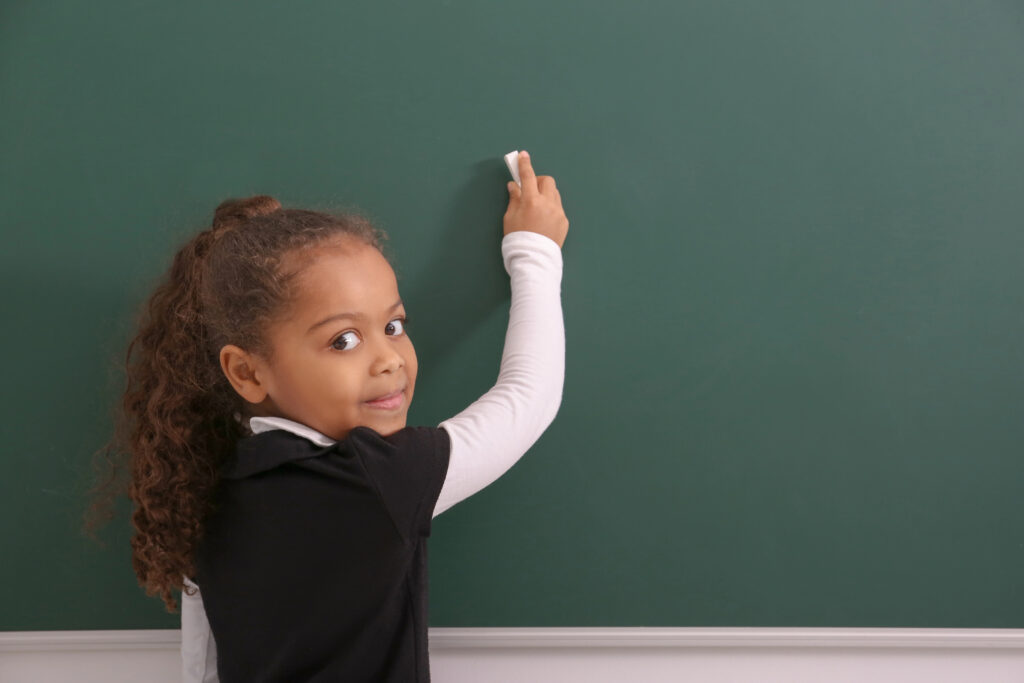
I didn’t know much about Nikola Tesla when my then-tween brought him up in conversation. Of course, I knew who he was and a bit about his legacy, but my kid started talking, and all I could think was that I didn’t know a fraction of the information they were sharing with me..
We were homeschooling at the time, so naturally, I assigned my child a presentation.
Another time, one of my kids came home from public school and asked if I was familiar with Nasreddin stories. I’d never heard of the Turkish folk hero at the time, but apparently, some of the stories had been included on a standardized test, and my child wanted to share them with me.
How many other times have my kids come to me and taught me something? More than I could count.
Language Learning As A Parent
One of my kids took Japanese classes in high school, and shared a few words with me, as well as showing me the Kanji their class had learned!
I did not learn much Japanese, but I’ve witnessed so many parents since learning a second language via their kids. One little girl, Kimi, is getting a lot of love on TikTok for her viral videos teaching her dad to speak English.
If this child grows up to be an ESL teacher, she’ll have the experience and patience necessary! She’s constantly reassuring her dad when he forgets a word. Her favorite phrase seems to be, “It’s a process!”
You can check out a video below in which she has him cosplay a worker asking his client (her) for a glass of water.
What Else Can Kids Teach Parents?
Kids teaching their parents a second language is pretty standard. After all, kids learn new languages much more easily than adults do, and when you move countries as an adult, your kids grow up learning the language that’s most common in your new location, and it comes more naturally for them.
Perhaps the things that kids are most commonly credited with teaching their parents, though, are more in the emotional realm. Psychology Today reports that this is happening a lot now because kids are being taught social-emotional learning courses at school and taking that education home to parents whose education didn’t include that material.
When his five-year-old had a tantrum because he wanted to go out and play, the father asked, “Why are you so angry?” The older third grader corrected his father: “No, Dad, he’s not angry, he’s probably disappointed.” And a dinner time conversation ensued about the difference between the two emotions.
Other examples include a child helping her mom understand how to talk about a sense of alienation at work (where she was the only female police officer in her precinct), and kids introducing their parents to concepts like a ‘mood meter’ and a ‘meta-moment’ to make a conscious choice between possible responses.
Kids Make Great Teachers — And They Benefit From It Too
When we see our kids teach (whether they’re teaching their parents, friends, or younger siblings), we get a real reflection of what they’ve learned, not just of the subject they’re sharing. We also see what they’ve learned about teaching, including whether they get angry and frustrated when their pupil doesn’t pick up the material quickly, or whether they know how to encourage gently. (We can definitely take our own lessons from that observation!)
Of course, each kid has their own interests, and when they have access to information, they start deep dives, and they always have tidbits to share. My daughter has passed on to me more facts and studies on animal behavior, mental health, and little self-help tricks (like where to squeeze on the webbing between the finger and thumb to ease a nausea sensation) than I can begin to name.
What’s especially amazing about this is that reteaching information is also an effective way to more deeply absorb it. That means that when you stop and listen to your kids explain to you that the Pokémon Fennekin is based on the fennec fox, or that sharks are living in underwater volcanoes, or that there’s an elegant trick for doing 3-digit multiplication in their head, not only do you get new information, but they learn it more strongly themselves, too.

